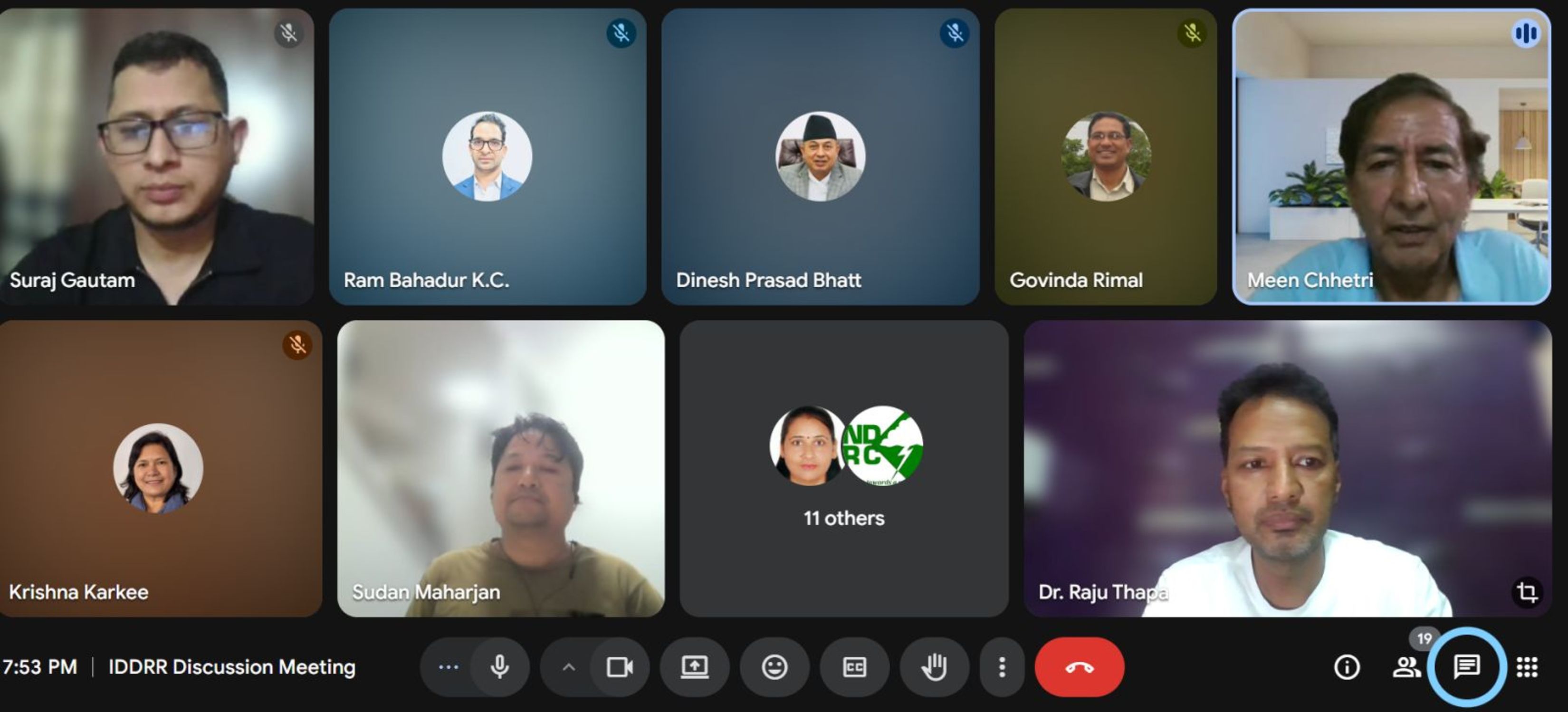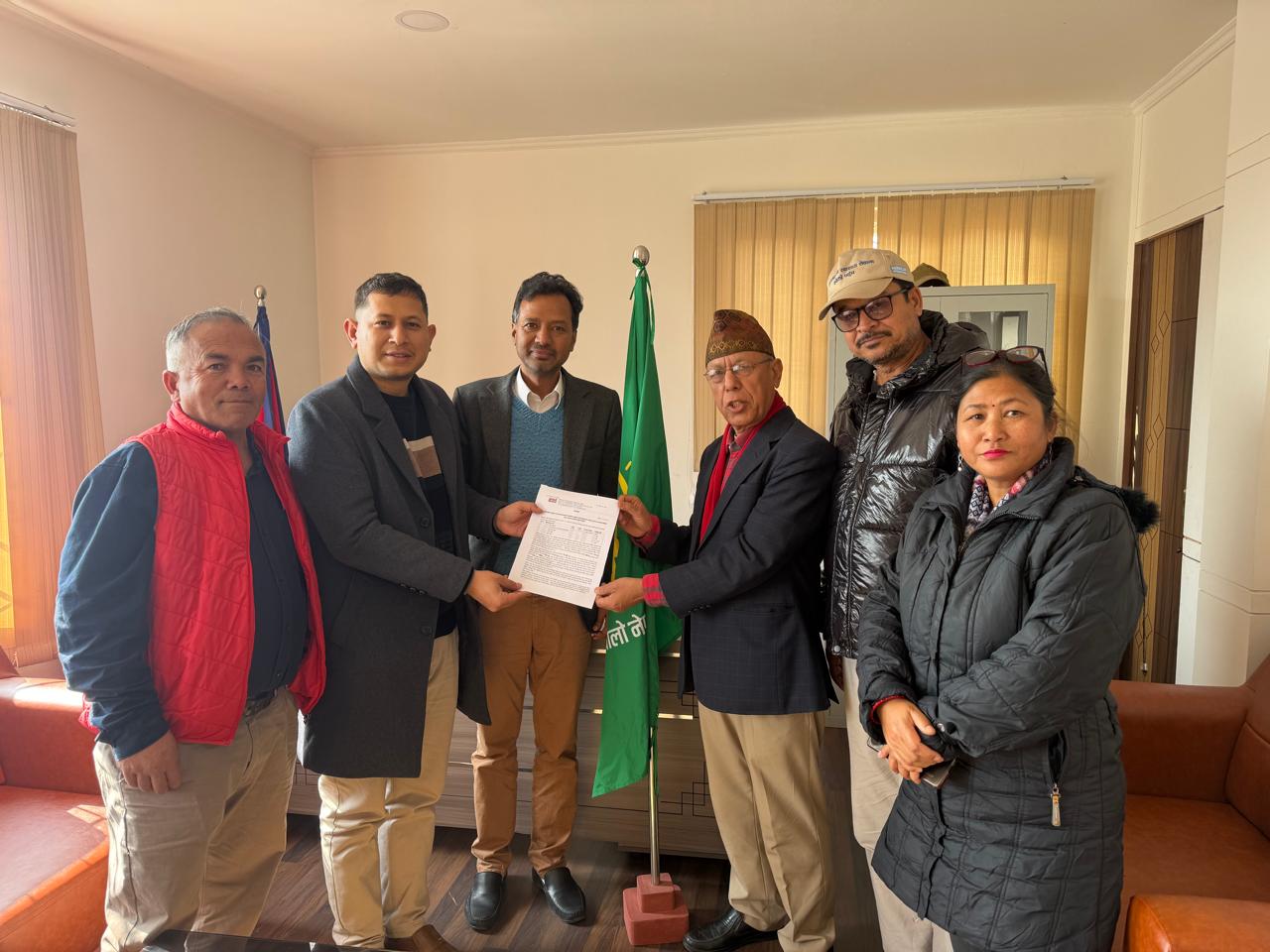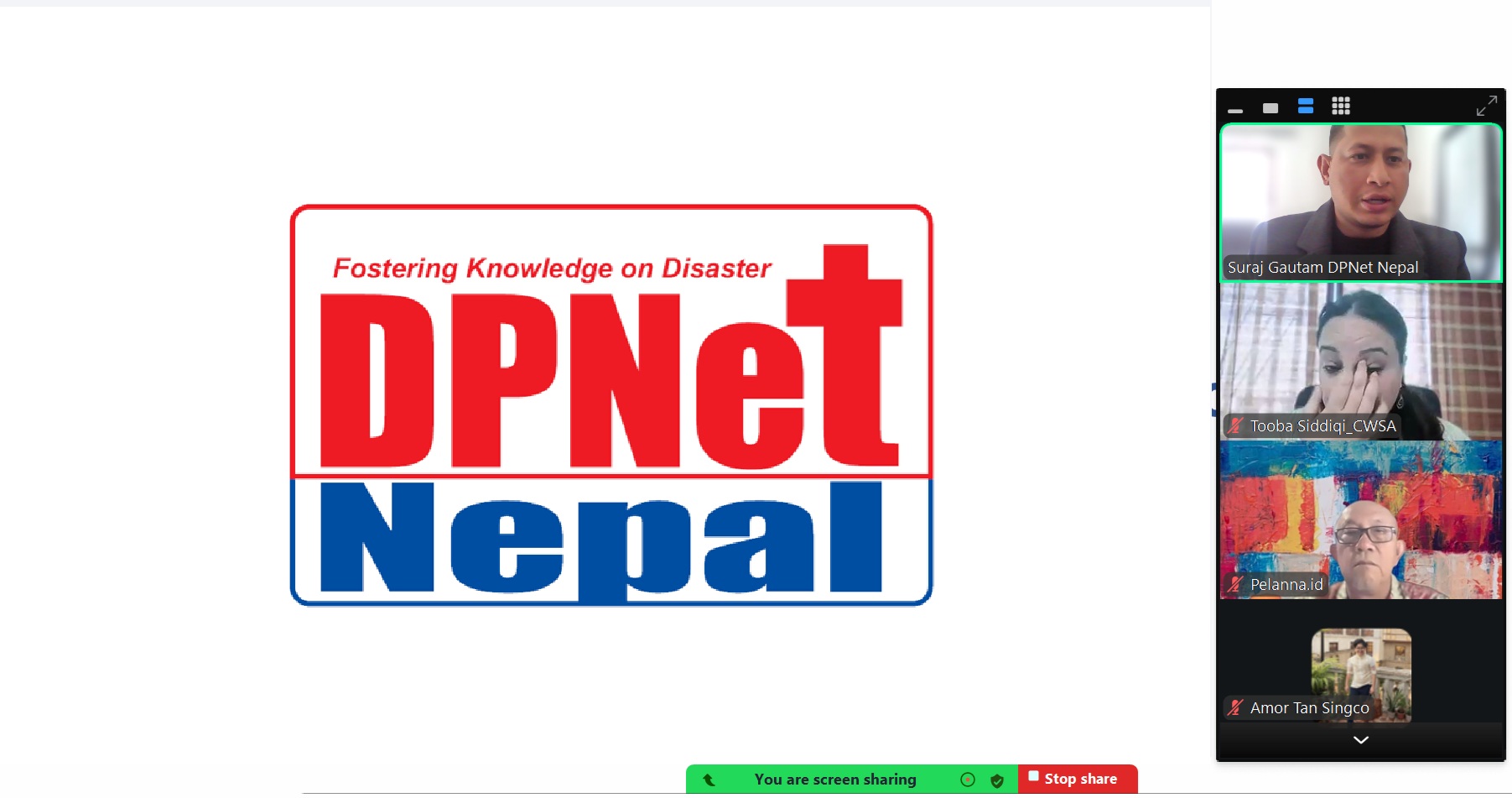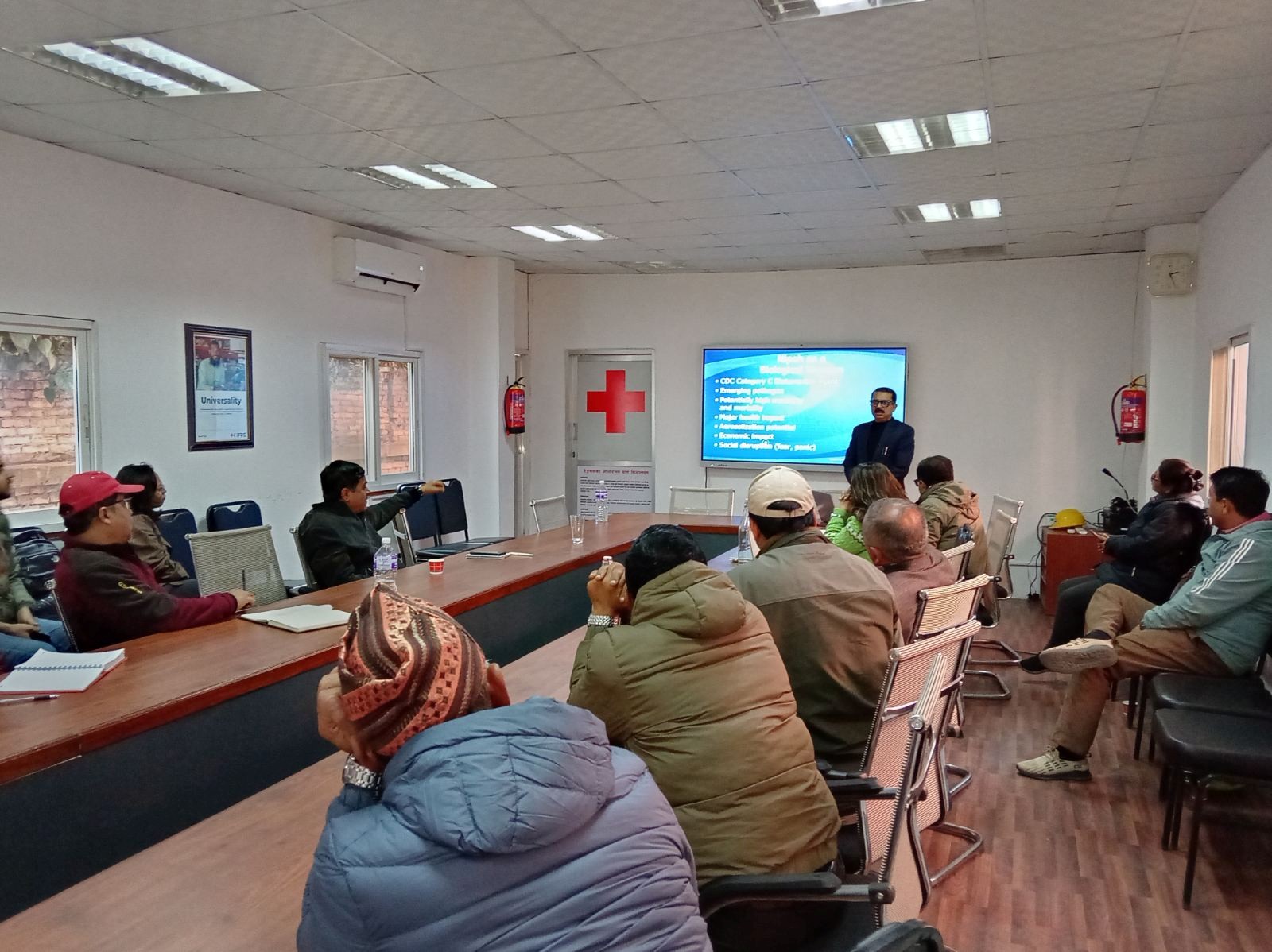Preparatory Meeting Held for IDDRR and 4th National Conference on Disaster Risk Reduction (NCDRR) 2025

Kathmandu, October 7, 2025 — A preparatory meeting for the upcoming International Day for Disaster Risk Reduction (IDDRR) and the 4th National Conference on Disaster Risk Reduction (NCDRR) was successfully held through the Zoom Meeting. Dr. Raju Thapa facilitated the meeting which brought together key representatives, including Mr. Dinesh Bhatta, Executive Chief of the National Disaster Risk Reduction and Management Authority (NDRRMA); Mr. Ram Bahadur KC, Spokesperson of NDRRMA; as well as DPNet Advisors, Technical Advisors, and partner representatives.
Dr. Thapa opened the session by reflecting on the impact of past NCDRR events and emphasized how the conference has evolved into a key platform for knowledge exchange and policy dialogue in disaster risk reduction. He also shared that ICIMOD will collaborate and coordinate closely for this year’s NCDRR, for the logistics assistance. He encouraged participants to review the proceedings from the 3rd NCDRR, which is publicly available here.
Mr. Suraj Gautam, General Secretary of DPNet Nepal, presented the theme for this year’s IDDRR “Fund Resilience, Not Disasters” aligning with the global theme for 2025. He informed that DPNet had circulated a call for Expression of Interest (EOI) among its members, partner organizations, and advisors to propose thematic sessions for the event. The call was shared on September 25 and responses were collected until October 6, 2025. He also briefed the participants on the two-day event concept, which can be accessed through here. The zero draft agenda for the upcoming International Day for Disaster Risk Reduction (IDDRR) and 4th National Conference on Disaster Risk Reduction (NCDRR) outlines a two-day event on October 13–14, 2025, themed “Fund Resilience, Not Disasters.” Day 1 focuses on the 2025 monsoon experiences, response actions, and emerging risks, with sessions on hydrometeorological impacts, reconstruction and recovery from major events of 2025, and transboundary hazards featuring experts from NDRRMA, ICIMOD, DHM, government ministries, civil societies, development partners, academia, media, disaster affected group, and so on. Day 2 highlights technology, governance, community engagement, and private sector roles in DRR and CCA, including discussions on AI/ML applications, local good practices, and inclusive resilience building. The event will combine keynotes, panel discussions, Ignite Sessions, Technical and Q&A sessions to promote collaboration among government, academia, civil society, and private stakeholders, serving as a national platform to advance Nepal’s resilience agenda.
Participants and advisors shared valuable inputs to enhance the inclusiveness and thematic relevance of the upcoming event:
- Dr. Meen Bdr Poudel Chhetri: Emphasized linking discussions with recent flood experiences, Indigenous practices, and community led initiatives from Ilam.
- Mr. Sabin Adhikari stressed the importance of government proactiveness, local government engagement, early warning and early action, and integration of Shock Responsive Social Protection (SRSP) mechanisms.
- Ms. Krishna Karki recommended stronger attention to GEDSI (Gender Equality, Disability, and Social Inclusion) and women-led disaster response. Ms. Sarita Karki and Mona Shrestha also Urged for deeper GEDSI integration across all sessions, noting gaps identified in the 2024 recovery phase.
- Mr. Shyam Gyawali proposed structuring the conference around the global IDDRR theme dedicating Day 1 to “Fund Resilience, Not Disasters” and Day 2 to “Recovery and Reconstruction”, highlighting the need for favorable CSR policies to support recovery efforts.
- Dr. Nahakul KC Highlighted the importance of showcasing the Nepal Resilient initiative and addressing unresolved issues related to women’s participation in recovery.
- Mr. Sudan Maharjan suggested on logistical and coordination improvements.
Dinesh Prasad Bhatta, Executive Chair of NDRRMA, highlighted the need to incorporate transboundary risk, early warning systems, and ICIMOD collaboration. He also advised ensuring participation of district-level officials (CDOs and security agencies), possibly through virtual sessions. The meeting concluded with a consensus on finalizing the session lineup and partner roles in the coming days, ensuring that inclusivity, innovation, and scientific collaboration remain central to the NCDRR 2025 agenda. Participants appreciated the collaborative efforts of NDRRMA, DPNet Nepal, and ICIMOD in bringing diverse stakeholders together for a unified national platform on disaster risk reduction.











